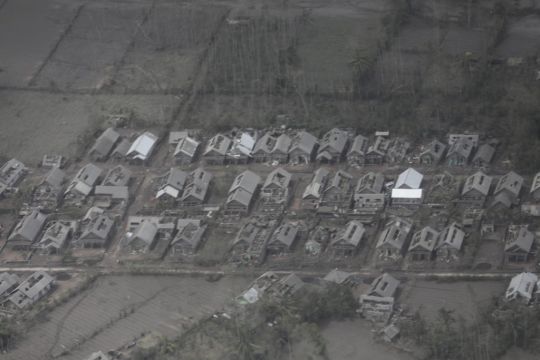Indonesian rescuers have dug out the body of 13-year-old boy with their bare hands as the search for the missing continues after a volcanic eruption on Java island killed at least 22 people.
A total of 27 others are missing after the island’s highest volcano spewed searing gas and ash on Saturday, blanketing nearby towns with tonnes of volcanic debris.
Mount Semeru in Lumajang district in East Java province emitted thick columns of ash as high as 40,000ft in the sudden eruption, triggered by heavy rain.

Searing debris raced down the sides of the mountain, smothering entire villages and killing or seriously burning those caught in its path.
National disaster mitigation agency spokesperson Abdul Muhari said 56 people had been taken to hospital, mostly with burns.
He said rescuers were still searching for 27 villagers reported missing. Nearly 3,000 houses and 38 schools were damaged.

The body of the 13-year-old boy was recovered in the worst-hit village of Sumberwuluh, where houses were buried to their rooftops and cars were submerged.
Crumpled roofs, charred carcasses of cattle and broken chairs covered in grey ash and soot dotted the still-smouldering landscape.
Search and rescue efforts were temporarily suspended on Sunday afternoon due to fears that heavy rain would cause more hot ash and debris to fall from the crater.
The eruption of the 12,060ft mountain eased pressure that had been building under a lava dome in the crater.

But experts warned that the dome could further collapse, causing an avalanche of blistering debris trapped beneath it.
More than 1,700 villagers escaped to makeshift emergency shelters on Saturday, but many others defied official warnings and chose to remain in their homes to tend their livestock and protect their property.
Semeru, also known as Mahameru, has erupted many times in the last 200 years.
However, as with many of the 129 volcanoes monitored in Indonesia, tens of thousands of people live on its fertile slopes. It last erupted in January, with no casualties.
Indonesia, an archipelago of more than 270 million people, is prone to earthquakes and volcanic activity because it sits along the Pacific “Ring of Fire”, a horseshoe-shaped series of fault lines.







